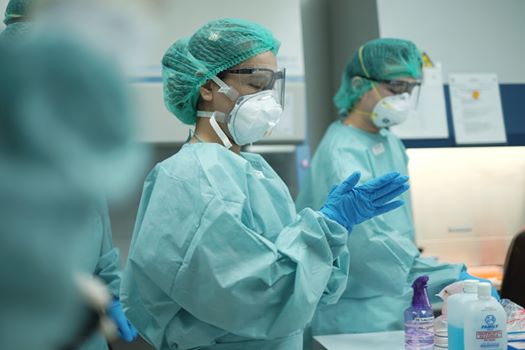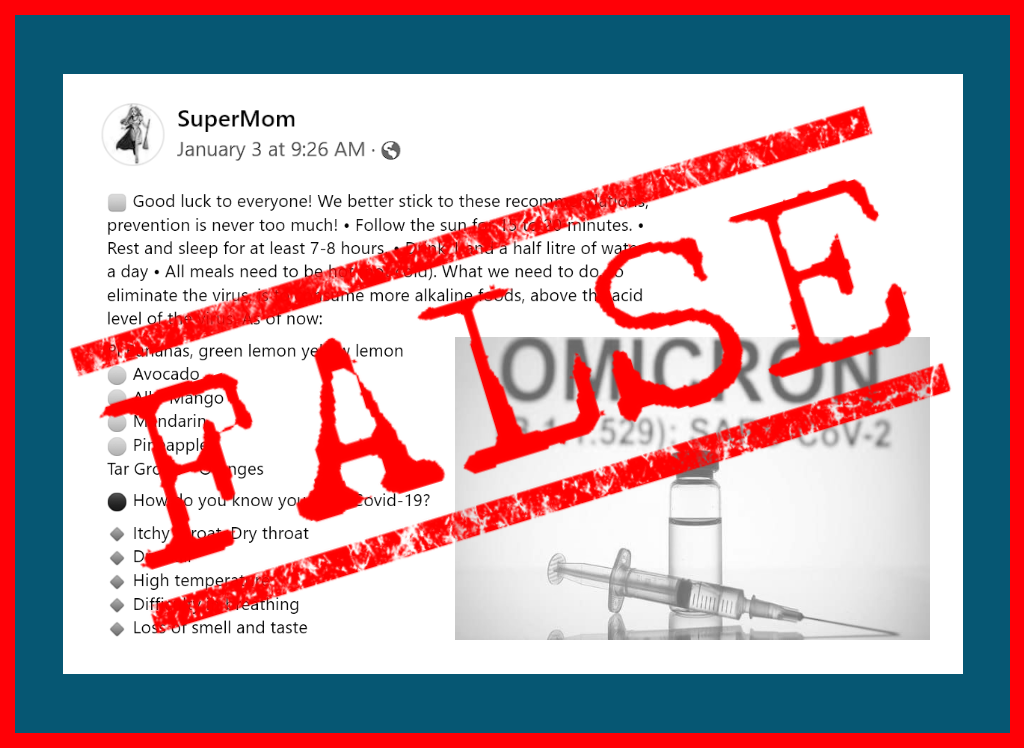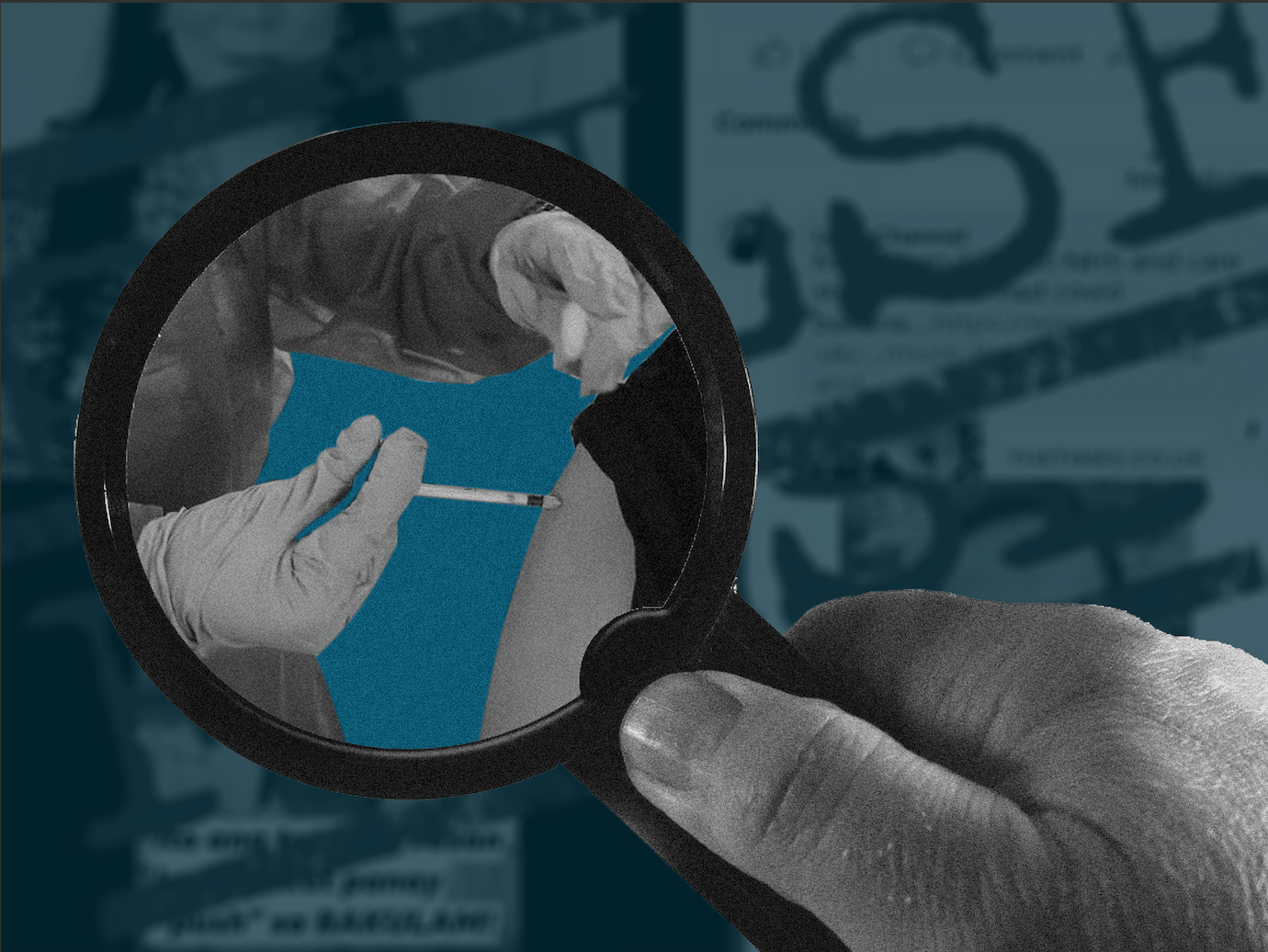The government started mass testing on coronavirus disease (COVID-19) one month after President Rodrigo Duterte declared a state of public health emergency and later imposed a Luzon-wide lockdown to stop the rampaging virus that has afflicted 4,932 persons and claimed the lives of 315, including 21 doctors, as of 4 p.m. on April 13.
Carlito Galvez Jr., presidential peace adviser and chief implementer of the National Task Force against COVID-19, announced in a press briefing on April 2 that the government plans to begin “massive testing” for COVID-19 on April 14, two days after the original expiration of the Luzon-wide enhanced community quarantine:
“On massive testing for PUIs and PUMs, we are also determined to fast track the accreditation of substantial laboratories so we can start the massive testing of the PUIs and the PUMs. We expect that by April 14, we should be able to start massive testing.”
Source: Presidential Communications Operations Office, Daily Report Update on the Coronavirus Disease 2019 by Secretary Carlito Galvez, Jr., April 2, 2020, watch from 7:54 to 8:12
Health Assistant Secretary Maria Rosario Vergeire, during the press briefing on April 13, said the DOH has already issued guidelines on mass testing through a memorandum, but, at press time, this has yet to be released to the public.
She emphasized that not anyone who wants to be tested can be accommodated in the mass testing, given the still limited number of testing kits in the country.
Here are five things you need to know about the government’s mass testing process:
1. Who will be prioritized for testing?
Patients and healthcare workers with severe or critical symptoms, with history of travel or direct contact with a positive COVID-19 case, and those with history of travel or exposure with the COVID-19 will remain a priority, according to DOH.
Additionally, patients who are considered part of the vulnerable population and healthcare workers showing mild symptoms will also be qualified for testing.
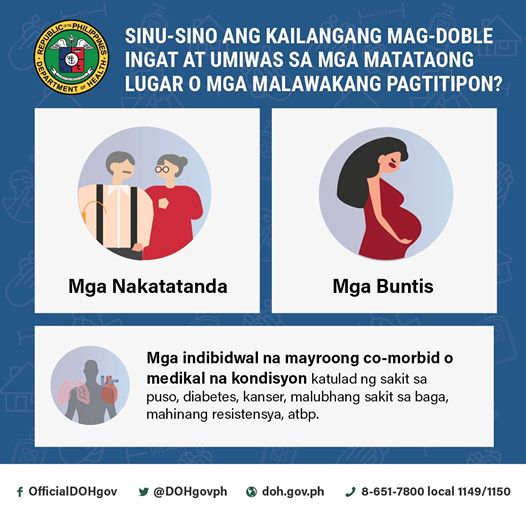
In the new classification released by the DOH on April 11, PUIs with mild, severe, or critical symptoms are classified into two, depending on whether they have already been tested for COVID-19.
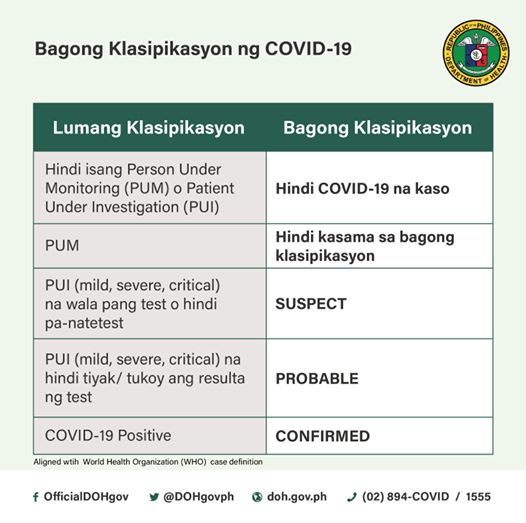
However, for the forthcoming release of guidelines, DOH said that once “the goal of conducting 8,000 tests per day” is reached, it will include patients or healthcare workers who have mild symptoms of COVID-19 but do not belong to the vulnerable groups.
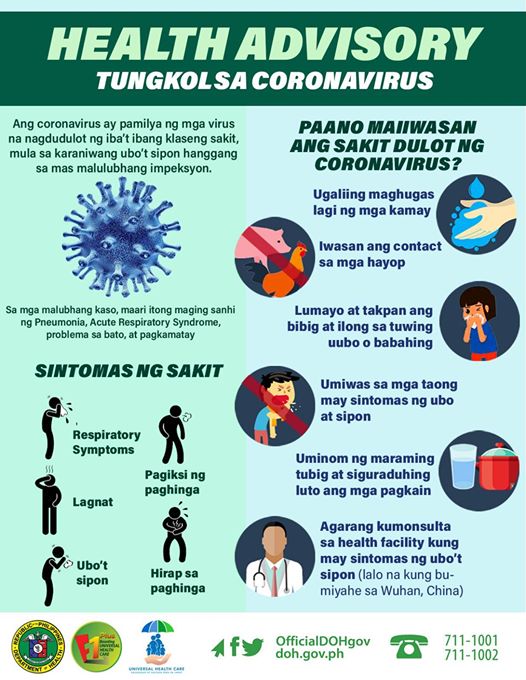
It added that DOH may now test “asymptomatics,” or those showing no symptoms and have relevant history of travel and direct contact, once it has boosted its testing capacity.
In an April 4 press release, DOH said it was already capable of conducting 3,000 tests per day and that it was targeting to scale up to 8,000 to 10,000 daily tests by the end of April.
In an April 13 virtual presser Vergeire said the country already tested 35,804 individuals as of 6 p.m. on April 12. Health Secretary Francisco Duque III said in an April 7 CNN interview that a COVID-19 patient usually undergoes two to three tests on average.
2. Where can people be tested?
Hospitals handling PUIs in quarantine are authorized to collect samples to be sent for laboratory testing for COVID-19 infection. (See VERA FILES FACT SHEET: Who should be tested for COVID-19 and other questions answered)
Community mass testing has started in Quezon City, Valenzuela City, and Manila City by taking swab tests from individuals, which will then be delivered to, and tested in, DOH-accredited laboratories.
As of April 14, the country has 16 laboratories that are in full operation for COVID-19 testing. This means these labs have been certified and allowed to process and test samples at full scale.
As of April 6, 63 health facilities are still in various stages of the accreditation process.
3. How soon can people get their COVID test results?
According to DOH’s response to questions from VERA Files, patients can expect test results within 48 to 72 hours once the testing capacity is increased and the backlog of previous tests are cleared.
The actual duration of each test using the Polymerase chain reaction (PCR) kits usually lasts 3 to 6 hours. The Research Institute for Tropical Medicine (RITM) and other subnational laboratories, following the strict procedure set by the World Health Organization (WHO), can release the test results between 24 and 48 hours. Verifying test results will be done when these are already released to the Regional Epidemiology and Surveillance Units (RESUs).
Finally, the RITM will forward the patients’ COVID-19 test results to the hospital where the patient is admitted, as well as to the RESU and the DOH’s Epidemiology Bureau. The patient may get his/her test results from the assigned doctor or city/municipal health officer.
4. What happens to patients who would test positive for COVID-19?
The clinical management of the patients who tested positive for the coronavirus disease depends on the severity of their symptoms, the DOH said.
The country has six quarantine facilities for patients with mild symptoms or who have tested positive but are asymptomatic, and who are unable to be in isolation at home.
5. What kind of test kits will be used?
As of April 13, the Food and Drug Administration (FDA) has approved 24 different brands of COVID-19 test kits that will be available, according to DOH.
In a virtual presser on the same day, National Task Force for COVID-19 spokesperson Restituto Padilla said RITM is looking forward to distribute 900,000 test kits to all the accredited testing facilities in the country for the mass testing.
In addition, about 26,000 of the 120,000 pieces of COVID-19 test kits developed by the University of the Philippines-National Institute of Health and funded by the Department of Science and Technology will be distributed from April 4 to April 25 to the following subnational laboratories:
- Philippine General Hospital
- Makati Medical Hospital
- The Medical City
- Vicente Sotto Memorial Medical Center
- Southern Philippines Medical Center, and
- Baguio General Hospital
Sources
Department of Health Official Facebook, DOH COVID-19 Case Bulletin #030, April 13, 2020
Official Gazette, Memorandum from the Executive Secretary on imposition of Enhanced Community Quarantine in Luzon, March 16, 2020
Presidential Communications Operations Office, Daily Report Update on the Coronavirus Disease 2019 by Secretary Carlito Galvez, Jr., April 2, 2020
Department of Health Official Facebook, DOH presscon, April 13, 2020
Department of Health Official Facebook, Ang mga matatanda, buntis, at may medikal na kondisyon ay kailangan umiwas, March 16, 2020
Department of Health Official Facebook, New Classification of Individuals for COVID-19, April 13, 2020
Department of Health Official Facebook, Health Advisory tungkol sa Coronavirus, Feb. 7, 2020
Department of Health website, COVID daily testing capacity increases numbers to improve further to 10k, April 4, 2020
Department of Health Official Facebook, DOH Presscon, April 13, 2020
CNN Philippines Youtube, Above and beyond: Health Sec. Duque, April 7, 2020
GMA News Online, Localized targeted COVID-19 mass testing conducted in Manila, QC, and Valenzuela City, April 13, 2020
CNN Philippines, Manila City to begin mass COVID-19 testing, April 13, 2020
Rappler, Mass testing will cover severe to critical cases, vulnerable population – DOH, April 13, 2020
Department of Health Official Facebook, LOOK: We now have 16 Certified Laboratories, April 14, 2020
Department of Health Official Facebook, COVID-19 Test FAQS: Gaano katagal ang bawat test?, March 16, 2020
Department of Health Official Facebook, COVID-19 Testing Kits FAQS: Paano isinasagawa ng RITM at ng ibang laboratoryo ang COVID-19 testing?, March 24, 2020
Department of Health Official Facebook, COVID-19 Testing Kits FAQS: Gaano katagal bago ilabas ng laboratoryo ang resulta ng COVID-19 test?, March 24, 2020
Department of Health Official Facebook, Healthcare workers FAQS: Sino ang nagsasagawa ng pag follow-up sa mga PUI at PUM?, April 3, 2020
Department of Health Official Facebook, COVID-19 Testing Kits FAQS: Saan makukuha ang resulta ng COVID-19 test?, March 24, 2020
Department of Health, List of COVID-19 registered kits, April 8, 2020
Presidential Communications Operations Office, Day-End Virtual Presser with Retired General Restituto Padilla, NTF Covid-19 Spokesperson on Behalf of Secretary Carlito Galvez, Jr., April 8, 2020
GMA News Online, FDA approves UP’s COVID-19 test kits for commercial use, April 3, 2020
Manila Bulletin, DOST: Locally developed COVID-19 test kits ready this week, March 30, 2020
Manila Times, FDA approves locally made Covid test kits, April 5, 2020
(Guided by the code of principles of the International Fact-Checking Network at Poynter, VERA Files tracks the false claims, flip-flops, misleading statements of public officials and figures, and debunks them with factual evidence. Find out more about this initiative and our methodology.)
